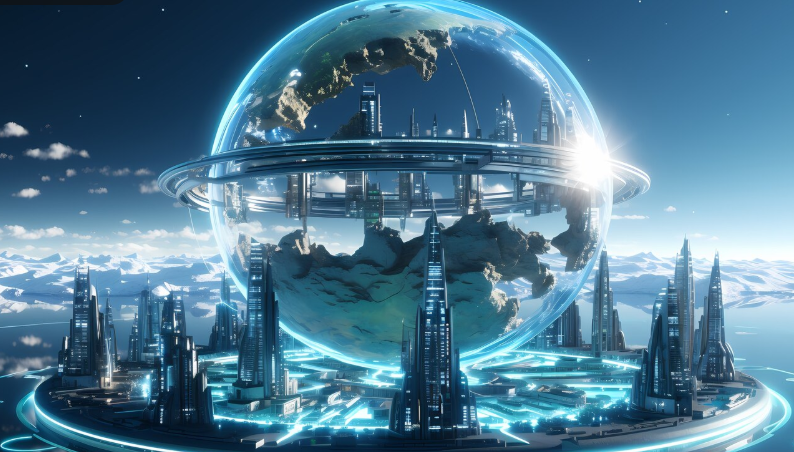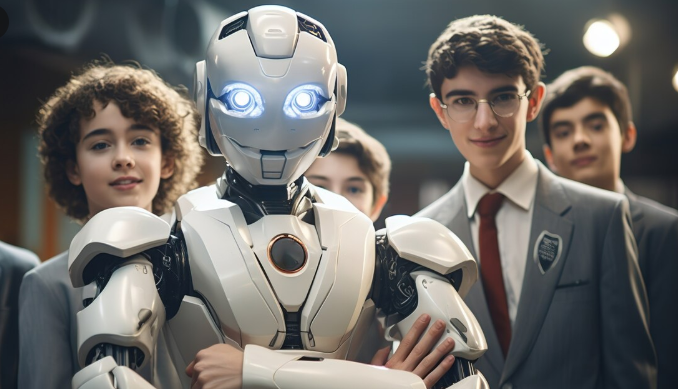Biotechnology is revolutionizing our understanding of life, health, and genetics. By integrating science with technology, biotechnology is reshaping human evolution in ways that were once unimaginable. From genetic engineering and CRISPR gene editing to bionics and synthetic biology, the future of humanity is being rewritten by biotechnological advancements.
This article explores how biotechnology is influencing human evolution, its ethical implications, and what the future holds for our species.
1. Genetic Engineering and Human Enhancement
Genetic engineering allows scientists to modify DNA to eliminate diseases, enhance traits, and even alter fundamental aspects of human biology. One of the most powerful tools in this field is CRISPR-Cas9, which enables precise gene editing.
Potential Applications
- Eliminating Genetic Disorders: Diseases like sickle cell anemia, cystic fibrosis, and Huntington’s disease could be cured at the genetic level.
- Enhanced Physical and Cognitive Abilities: Gene editing could improve intelligence, strength, and even longevity.
- Disease Resistance: Modifying genes to increase resistance to viruses like HIV and future pandemics.
Ethical Concerns
- Designer Babies: The ability to select traits could lead to ethical dilemmas and social inequality.
- Unintended Consequences: Long-term effects of gene editing on evolution remain unknown.
- Genetic Inequality: Access to genetic enhancements may widen the gap between rich and poor.
Despite these concerns, genetic engineering has the potential to accelerate human evolution by eliminating diseases and enhancing human capabilities.
2. Synthetic Biology and Human Augmentation
Synthetic biology is the creation of artificial biological systems, including modified human cells, synthetic DNA, and even lab-grown organs.
Key Developments
- Lab-Grown Organs: Scientists are developing bioengineered hearts, kidneys, and livers for transplantation.
- Artificial Intelligence in Biology: AI-powered biotech is designing new proteins and treatments for diseases.
- Synthetic DNA and Artificial Life: Researchers have created synthetic organisms that could be used to enhance human health.
Potential Impacts on Evolution
- Extended Lifespan: Bioengineered tissues and regenerative medicine could slow aging.
- Human Adaptation to Extreme Environments: Synthetic biology may allow humans to survive in space or harsh climates.
- Customized Biology: Future humans may have engineered traits for intelligence, memory, or physical endurance.
Synthetic biology is redefining what it means to be human, paving the way for bio-enhanced individuals who can adapt to new challenges.
3. Bionics and Human-Machine Integration
Bionics and cybernetic enhancements are merging humans with technology, creating cyborg-like abilities that could dramatically impact evolution.
Current Advances
- Brain-Computer Interfaces (BCIs): Neural implants like Elon Musk’s Neuralink allow direct communication between the brain and machines.
- Advanced Prosthetics: Bionic limbs powered by AI and brain signals restore mobility to amputees.
- Artificial Organs: Bionic hearts, eyes, and kidneys are being developed to replace damaged biological organs.
Future Possibilities
- Superhuman Abilities: Enhanced vision, hearing, and cognitive processing could redefine human potential.
- Mind Uploading and Digital Consciousness: The ability to transfer thoughts and memories to computers may challenge the concept of mortality.
- Human-AI Symbiosis: Integration with AI could create a new form of intelligence beyond biological limits.
Bionics and human-machine integration suggest that the next stage of evolution may not be purely biological, but a fusion of biology and technology.
4. The Role of Biotechnology in Human Longevity
Biotechnology is advancing life extension research, aiming to slow aging and increase human lifespan.
Anti-Aging Technologies
- Senolytics: Drugs that remove aging cells, reducing age-related diseases.
- Genetic Reprogramming: Reversing aging at the cellular level to restore youthful function.
- Nanomedicine: Using microscopic robots to repair cells and fight diseases at the molecular level.
Impact on Human Evolution
- Extended Lifespan: Humans may live well beyond 100 years, altering population growth and societal structures.
- Slower Biological Evolution: If biotechnology allows people to avoid natural selection pressures, human evolution may shift toward technological adaptation rather than biological change.
- New Ethical and Social Challenges: Longer lifespans could create economic and environmental concerns related to overpopulation.
Biotechnology has the potential to reshape aging itself, redefining what it means to grow old and how future generations will evolve.
5. Ethical and Philosophical Questions
While biotechnology offers exciting possibilities, it also raises profound ethical and philosophical dilemmas:
- Should We Edit the Human Genome? Altering DNA for health reasons may be widely accepted, but should we enhance intelligence, physical traits, or lifespan?
- Will Biotechnology Create a New Class Divide? If only the wealthy can afford genetic enhancements or cybernetic upgrades, will it lead to social inequality?
- What Does It Mean to Be Human? As biotechnology blurs the line between human and machine, will our definition of humanity change?
Addressing these questions will be crucial as society navigates the future of human evolution.
Conclusion
Biotechnology is accelerating human evolution in ways that were once considered science fiction. From genetic engineering and synthetic biology to bionics and anti-aging research, the boundaries of human potential are being redefined.
While these advancements offer unprecedented opportunities to enhance health, intelligence, and longevity, they also raise significant ethical and social challenges. The future of human evolution may no longer be shaped by natural selection alone, but by deliberate technological choices.
As biotechnology continues to evolve, humanity must carefully balance innovation with ethics, ensuring that the future of our species is guided by responsibility, equality, and a shared vision of progress.


